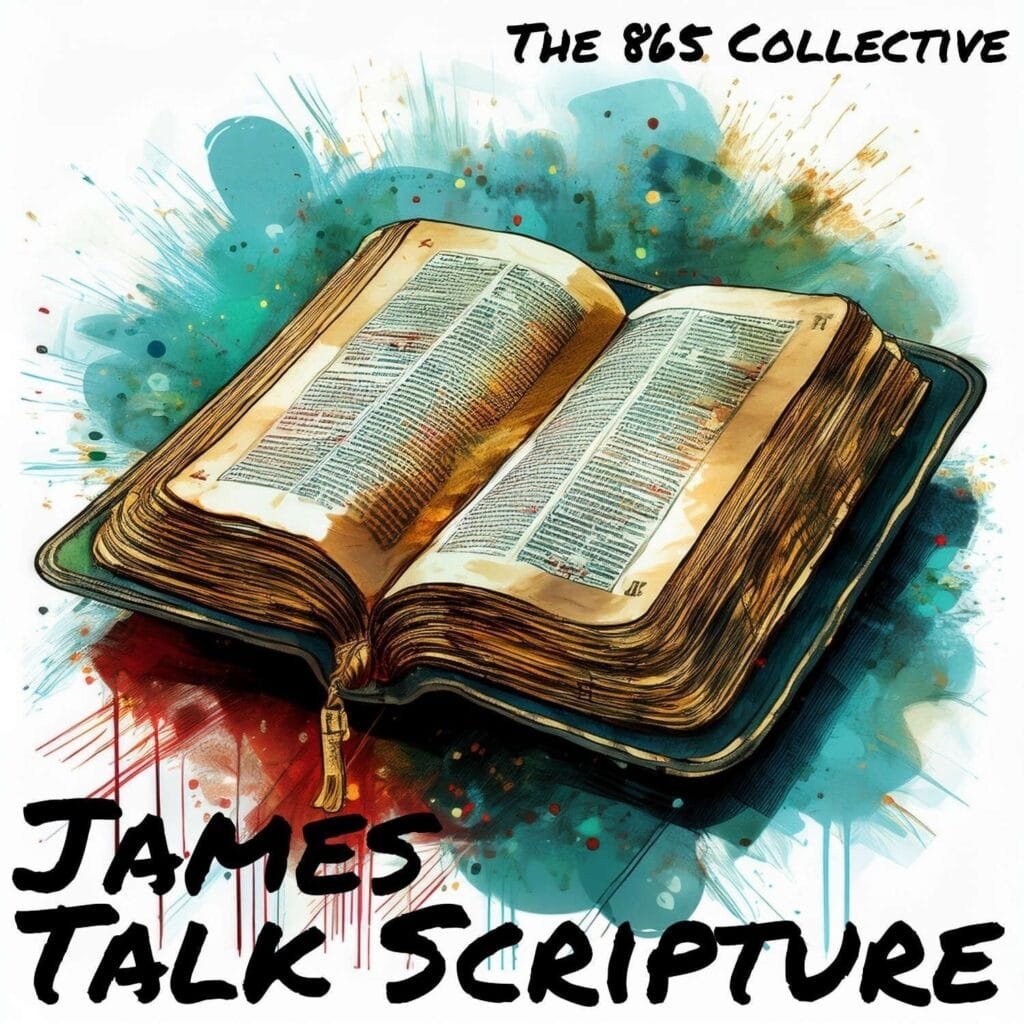James continues his discussion on partiality by bringing up the “royal law.” This is a direct nod to God’s commandments, reaffirmed by Jesus in Matthew 22:
“You shall love the Lord your God with all your heart and with all your soul and with all your mind. This is the great and first commandment. And a second is like it: You shall love your neighbor as yourself. On these two commandments depend all the Law and the Prophets.”
Everything else—every law, every command—flows from these two foundational truths. Think of it like a tree. Picture a big willow tree, one of my favorites. The trunk represents our love for God, rooted deeply in Him. From that trunk grow two massive boughs, or main branches: loving God and loving people. And from those main branches, every other law, rule, or guideline found in Scripture grows like twigs and smaller branches.
This imagery highlights something important: the trunk supports the tree. Everything flows out of our love for God. Our energy and focus should first be on loving Him—which then leads to loving people. That’s the filter through which we should interpret every command in Scripture.
Take our speech, for example. The Bible gives us plenty of guidelines about how we should use our words—James is full of them. But those instructions aren’t there just so we can check a box or feel holier because we obey them. We don’t get patches on some kind of Christian achievement vest. The goal isn’t to turn a twig into a branch or the twig into the trunk. We guard our words because of our love for God and for people.
The intent behind God’s commands is love—love for Him and love for others. If we follow these rules just to feel more holy or superior to others, we’ve missed the point entirely. That’s how we become modern-day Pharisees, puffing out our chests and thinking, God is really lucky to have me.
Let me be clear: If we follow every rule but do not love God and love people, we’ve lost sight of what truly matters. The law itself becomes our god. Hear me—twigs do not support the trunk. The trunk supports the twig.
Everything in our faith journey should be viewed through the lens of loving God and loving people. Our obedience is a willing surrender, allowing Jesus to be Lord over every part of our lives—our relationships, our money, our time, our desires. But notice that loving God comes first. Why? Because our love for Him shapes how we love people. And God, not the world, defines what love truly is.
James then makes a striking point: violating even one law makes us guilty of the whole law. He uses the example of murder and adultery—two sins that seem vastly different. But he’s showing us something deeper. If breaking one “big” command makes you guilty of breaking the “small” ones, then breaking a “small” command makes you just as guilty of the “big” ones.
This means sin is serious—all sin. Even something that seems insignificant, like favoritism, is placed in the same conversation as murder and adultery. Why? Because sin—any sin—separates us from God. And the weight of that should always point us back to our need for His mercy. Thank God for His mercy.
Because of this, James tells us to speak and act as those who are to be judged under the law of liberty. That means we should take holiness seriously—not as a means to earn salvation, but as a response to the grace we’ve been given.
Paul tackles this in Romans 6:
“What then? Are we to sin because we are not under law but under grace? By no means! Do you not know that if you present yourselves to anyone as obedient slaves, you are slaves of the one whom you obey, either of sin, which leads to death, or of obedience, which leads to righteousness?”
We don’t pursue holiness for God’s grace—we pursue holiness because of God’s grace. Our obedience, the way we speak, act, and live, is an outpouring of our love for Him. And like James, we joyfully submit ourselves to the Gospel, to the lordship of Jesus Christ.
James brings this discussion full circle with a powerful truth: mercy. God has lavished His mercy on us—so much so that just when we think we’ve exhausted it, He pours out more. And because we’ve been given such great mercy, we are called to extend it to others. That’s the mark of someone who has been transformed by mercy—how freely we give mercy to others.
So, here’s the question: Are we people marked by our commitment to the royal law?
Are we allowing our love for God and love for others to shape everything we say and do?
Do we approach sin with the severity it deserves, understanding that we can never be good enough, but pursuing holiness out of our love for such a good God?
Do we thank God for the mercy that He has freely given us by offering our lives as a reasonable service to Him?
And do we, in turn, extend that mercy—which is overflowing to us—to all those around us?
ESV Study Bible. (2010). Crossway Books.
From Talk Scripture: Rooted in Love, Marked by Mercy | James 2:8-13
This material may be protected by copyright.

